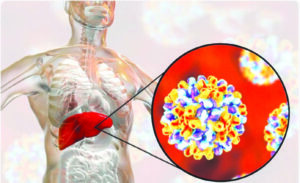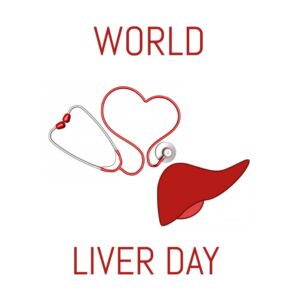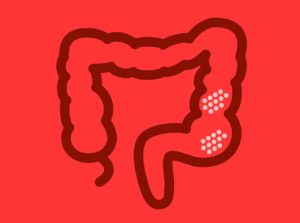Gastric problem: symptoms, causes and remedies
In today’s fast–paced world, digestive disturbances and other gastrointestinal illnesses affect not only adults, but also children, adolescents, and the elderly. The clear reason behind this is the food that we eat contains a lot of trans fats, sugars, and oils which results in making the stomach upset. A gastric problem, also known as gastritis, is an inflammation, irritation, or erosion of the stomach lining. It begins as an acute condition and can progress to a chronic condition. A foul odour that emanates from a person suffering from a gastric problem can be quite embarrassing at times, but the main concern is to prevent and cure the acute stomach and intestines problem.
Gastric problem symptoms
In most cases, gastric problems are less intense and can be easily resolved with simple remedies and mild medication within one or two days. Common symptoms of gastritis are:
- Constant abdominal pain
- Indigestion
- Loss of appetite
- Continuous nausea and vomiting
- Abdominal Bloating
- Dizziness and persistent headache
- A feeling of pressure and pain in the chest
However, if the gastric problem causes excruciating stomach pain, uncontrollable nausea and vomiting, blood in the stool, or a high fever, it is best to consult a doctor.
Factors causing Gastric Problems
A human digestive system is designed to perform routine biological functions flawlessly. Passing gas or burping is a normal part of digestion. However, the digestive system’s functioning is disrupted for a variety of reasons. This makes a person more susceptible to digestive issues. Certain habits can lead to indigestion and gastritis. These are:
- Remaining empty stomach for a longer time
- Gulping down food rapidly without chewing properly
- Taking high amounts of unhealthy, greasy junk food regularly
- Drinking a lot of alcohol
- Taking a lot of stress and tension
- Consuming food with high starch and insoluble fibers those can imbalance healthy gut bacteria. This bacterium aids in the proper digestion of food.
- A sedentary lifestyle that lowers digestion
Some other factors also cause an increase in gastric problems. These are:
- Viral or Bacterial infection
- Food poisoning
- Lactose intolerance
- Constipation
- Celiac disease
- Peptic ulcer
- Irritable bowel syndrome
A consultation with a doctor aids in the diagnosis of the actual cause of a gastric problem by closely diagnosing an individual’s gastric problem symptoms. A number of tests may be recommended to determine the root cause. This aids in the prompt treatment of the underlying severe condition.
Remedies to cure Gastric problems
The most important way to control a gastric problem is to maintain healthy eating habits that keep the gut healthy. However, to control gastric problems at home, some tips to follow are:
- Increase intake of water either warm or with lemon juice.
- Avoid drinking liquids through straws, especially for young children.
- Drink herbal teas that include ginger, chamomile, and anise that acts rapidly upon bloating and gas.
- If a burning sensation is there in the throat along with gastritis then have a glass of cold milk, buttermilk, or mint juice.
- Try eating more home-cooked healthy food rather than outside junk food. Include more fruits, whole grains, and vegetables in diet.
- Chew fennel (sauf) seeds after the meals. Fennel seeds stimulate the digestion process by enabling gastric secretions to process food easily.
- Chewing of clove(laung) seed or swallowing clove powder along with cardamom (elachi)also promotes proper digestion of food and dispels excessive gas.
- Consuming probiotics via yogurts, and supplement drinks provides the stomach with good bacteria to beat gastritis, diarrhea, and other intestinal disorders.
- Take the medication prescribed by a doctor if required.
Foods to avoid to prevent Gastric Problems
Although it is recommended to change to healthy eating habits to prevent gastric problem symptoms, certain foods despite being rich in essential nutrients like vitamins and minerals can aggravate the gastric issue. Healthcare professionals advise against eating those foods to alleviate the discomfort caused by gastritis and flatulence.
- Food containing complex sugars – Certain foods like beans, green leafy vegetables like cabbage, broccoli, etc. contains high levels of complex sugar naturally. These can be difficult to digest by the body and hence cause discomfort and gas.
- Food containing fructose – Fizzy drinks, packaged fruit juices, sweetened calorie-loaded junk foods, etc. are high in a sugar called fructose. Some natural foods like pears and onions also contain fructose. It is a complex form of sugar that can trigger the formation of gas in the stomach and should be avoided.
- Food containing lactose –Dairy products like milk, cheese, butter, etc. contain lactose. Many people can have lactose intolerance unknowingly that can trigger gastritis if consumed. So the intolerance should be thoroughly watched and taken care of to prevent gastritis.
- Food containing starch – Processed foods like pasta, corn, and wheat-based products, as well as natural foods like potatoes contains a high level of starch. Starch also is difficult to digest easily, so it should be avoided to prevent gastric issues.
Some effective ways to Curb Gastric Problems
Gastric problem symptoms can aggravate anytime despite conscious practices to avoid it. Some ways to still curb the problem are:
- Eat slowly and always take small portions of meals at regular intervals.
- Chew food well and keep mouth close while chewing.
- Avoid chewing gum as a lot of air is swallowed while chewing it.
- Keep a track of various food allergies as these foods invariably cause gas and flatulence.
- Quit smoking to keep lungs as well as gut healthy.
- Hydrate the body well as it detoxifies the gut and prevents gas accumulation.
- Exercise regularly to keep away from gastric problems.
Conclusion
The most common problem associated with the stomach is gastritis. It can happen unexpectedly and can be treated with a variety of remedies. In chronic cases, however, a proper diagnosis of the cause, as well as proper treatment, medication, and follow-up, is required to cure it from the root. A healthy lifestyle should be followed to stay healthy and avoid the onset of gastric problem symptoms.



